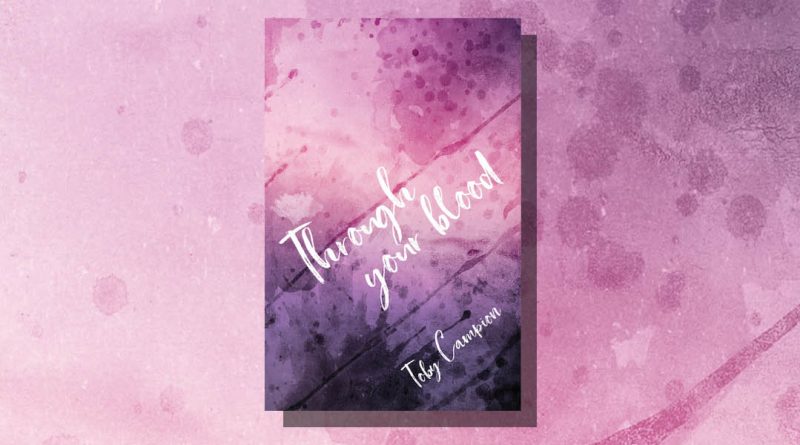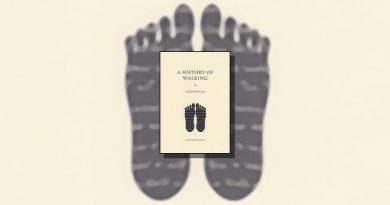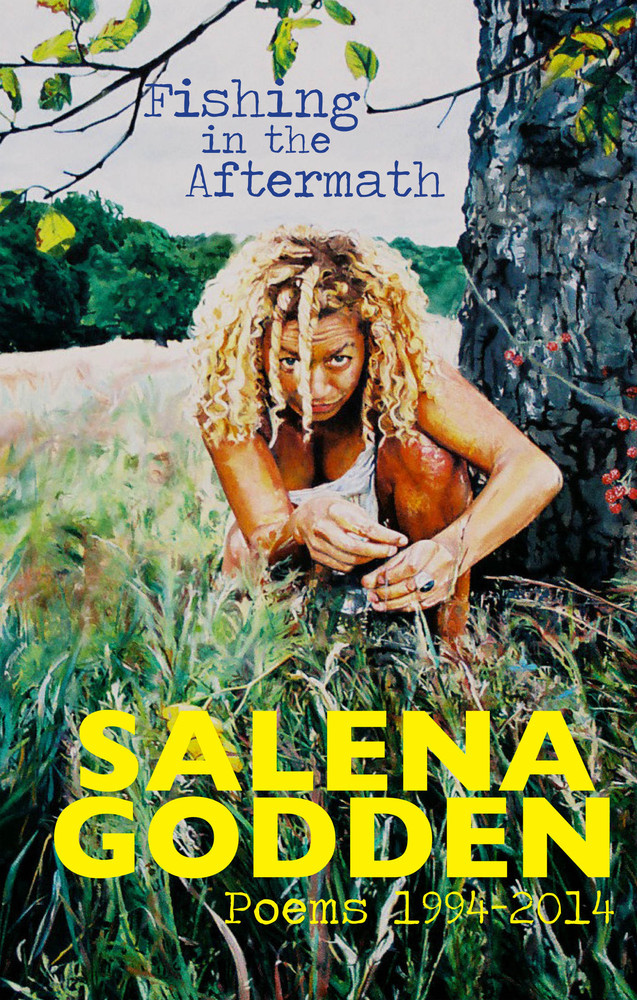Through your blood by Toby Campion
-Reviewed by Phoebe Walker-
Longlisted for the Polari First Book Prize 2018, Toby Campion’s Through your blood is a powerful, visceral and witty examination of growing up, coming out, and the aftershocks of prejudice and homophobia. Thrumming with voices that are by turns indignant, moving and very funny, these are poems to be re-read and savoured.
Many poems have a Bildungsroman quality, the ho-humness of teenage life shot through with threads of elation and fear. ‘Learning to Swallow’ recalls a friend serving up doubles, and “If her supervisor was in earshot, she’d ask for ID/ and we’d hand over our Nando’s loyalty cards”. That quotidian teenage experience sours, when “Two brickhouse-built men, with the tattooed fists […]/ Knuckle-duster stared”
The girls didn’t notice.
The table caught fire
and the glue holding up my forehead melted,
my teeth fell out and buried me
Everywhere this hyper-awareness, this prescience of violence, floats in the background of otherwise typical adolescence with a pronounced Midlands accent – the region is described as Britain’s middle child, the proud founder of “pork pies./ And several brands of cheese” (‘From the Midlands’). Campion displays this phase of life in all its crude awkwardness and humour, as well as its more despairing and dangerous modes. “Warmest summer on record./ We were what it made of us./ Night times, corner shop” – this is familiar teenage territory, but it’s intensified, with friends “shotting metal mouthfuls” of cheap alcohol, “Menthol/ Superkings sickening the evening/ air” (‘Summertime Stretch’).
This clarity of image tautens the collection’s nostalgic mood, ensuring that those similarly clear-headed messages of anger, fear and frustration are sharpened accordingly, without becoming heavy-handed. It’s obvious that Campion – a UK National Poetry Slam Champion and a World Poetry Slam finalist – has an unerring ear for how words will work in performance, as well as for the page; the messages are clear, but unhackneyed. I’d especially like to hear him perform ‘Telling the lads’, which begins in engagingly chatty style:
but I’m not like a gay gay
you know a vodka-cranberry gay
a here-and-queer gay
I’m more of a just like a here gay
a steak and ale pie gay
an always think twice about whether
my shirt’s a bit too gay gay
And then loosens into something more plaintive, half-entreaty, half battle-cry:
A sorry sorry sorry sorry sorry sorry sorry
for the audacity of a tongue gay[…]
lips split not outspoken
a dying to unsleep myself awoken gay
The later part of this collection takes a purposeful turn – we’re beyond adolescence now, and the pains and pleasures of the adult world in full-throttle have to be digested and assimilated into precariously developing selfhood. The exploration of self-conscious physicality here is particularly absorbing because of the range of bodies, of bodily awareness, that it encounters. Phrases such as “I am bloated with you,/ I eat breakfast and cannot unthink your hips”; “stories of other women/ ooze over your chin and ferment in your lap”; “you were the one […]/ who fastened the seatbelt of his voice/ into my ear” brilliantly illustrate sex’s psychological discomforts, as well as its physical ones (‘Learning to Drive’). The images are devised with a fastidiousness that precludes any real sense of pleasure – the narrator is unequivocal: “that was not the deal […] I am the one who died.” Elsewhere, in more symbolic mode, a voice asserts that “It is not for us to lift ourselves/ from the skin of this town”. And then another shift in focus on the physical in ‘Notes from the Sexual Health Clinic Waiting Room’, which “smells like anxiety and hair removal-cream”, where the speaker
[…] knew deep inside,
at some point in the near future,
I would be weeing into a cup
This is writing that is unafraid to sift through the cloudy backwash of relationships – with friends, family, lovers, partners, with oneself, even with God – while retaining the ability to present, in moments of great tenderness and vulnerability, the essence of what it is about these relationships that makes them worthwhile, or at least worth pursuing. And the points where this pursuit is most threatened, when fathers are taught to “ration softness/ like dried fruit”, when news of the 2016 Orlando nightclub massacre breaks like a wave, the conversation continuing “as a wake or afterlife might”, is where the voice of this collection – warm, sharp, funny, embattled – shines through most clearly. When challenged “we haven’t heard you like that before”, it replies “you haven’t heard me”.





